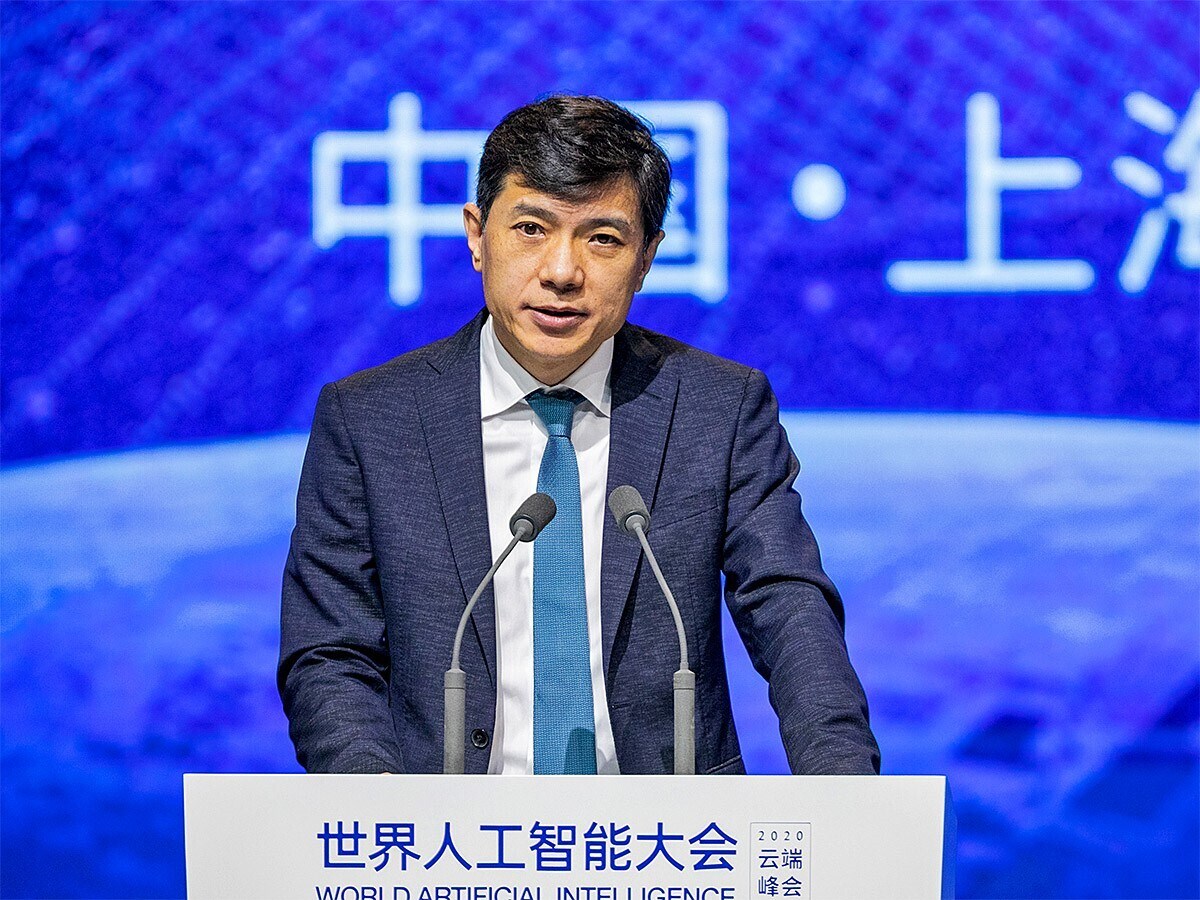Chinese search engine and education technology giant Baidu [BIDU] is forecast to report a 34% decline in earnings despite an 18% rise in revenues when it reports its third-quarter figures on 17 November. Analysts expect Baidu to post revenues of $4.91bn for the quarter and earnings per share of $1.99.
Baidu, under leadership of chief executive Robin Li (pictured above), is increasingly moving into the world of artificial intelligence and automated cars and has benefitted from more people in China heading online during the COVID-19 pandemic.
However, the Baidu share price has, along with other Chinese tech stocks, been battered by increasing regulatory changes imposed by the government, including anti-trust fines, restrictions on children playing video games and limits on profit-making for companies.
The Baidu share price has plunged 51% from mid-February to date as a result of investor nervousness around the government action, as well as a general market shift from growth to value. It closed at $170.57 on 12 November, down from its $339.91 peak in February.
Analysts believe Baidu will face a drop in advertising revenues from curtailed tutoring centres, which have been told by the government to stop offering private, for-profit tutoring on the school curriculum. Other crackdowns on video games and beauty are also likely to hit revenues.
Its Netflix-like service, iQiyi, may also suffer given the government’s opposition to celebrity fan culture.
51%
Baidu share price drop since mid-February
Analyst expectations
In the second quarter, Baidu reported forecast-beating year-on-year revenue growth of 20% to $4.86bn, with earnings per share of $2.39 beating forecasts of $2.03.
Consequently, the third quarter will mark a slight slowdown in demand and performance. However, analysts remain bullish. According to MarketScreener, a consensus of analysts has a ‘buy’ rating on the stock.
A lot of the confidence stems from hope that the regulatory crackdown could be short-lived, but also in the action tech firms such as Baidu have taken to insulate them from government pressure.
Placing its chips
Given the current shortage in semiconductors – vital in the manufacturing of cars, including electric vehicles, and electronics – the Chinese government wants the nation to become self-reliant and increase their production.
Baidu has an artificial intelligence chip called Kunlun which, powers its in-house applications including its search engine, reported Bloomberg. Baidu is weighing up whether to spin off its AI chip unit, which helps to power cloud services for client such as businesses and local government.
“It’s definitely good news for their [tech company’s] shares,”, Steven Leung, executive director at UOB Kay Hian, told Bloomberg. “It’s an area that the government supports the most. It’s something that investors will want to hear at this moment, as they are looking for reasons to buy after such a big correction.”
Nuno Fernandes, a US-based portfolio manager at GW&K Investment Management, also told Bloomberg: “It shows that they are compliant with most of the requests from the government and willing to channel a big portion of their profits into a strategic investment like this to support the nation’s goal.”
Baidu is also powering ahead with autonomous driving technology. This summer Baidu teamed up with state-owned car maker BAIC Group to build 1,000 driverless cars over the next three years, reports CNBC. They also hope to eventually build a robotaxi service across China.
“they are compliant with most of the requests from the government and willing to channel a big portion of their profits into a strategic investment like this to support the nation’s goal” - GW&K portfolio manager Nuno Fernandes, per Bloomberg
Navigating government restrictions
Analysts will be keen to hear about customer and advertiser trends during the quarter and what this might mean for the rest of the pandemic and into 2022.
The main focus, however, is likely to be the Chinese government crackdown and what could be next. It is unlikely that management will say anything negative about the government’s actions, but there could be even more investment announced into its AI and chip making capabilities as it looks to diversify.
There could even be a silver lining from government action. As reported by the Motley Fool last month, Chinese regulators are considering forcing rivals like Tencent [TCEHY] and ByteDance to display their social media content in internet search results.
That could lead to even more demand and hits on its search engine and potentially take advertising cash away from its rivals and into its pockets.
Disclaimer Past performance is not a reliable indicator of future results.
CMC Markets is an execution-only service provider. The material (whether or not it states any opinions) is for general information purposes only, and does not take into account your personal circumstances or objectives. Nothing in this material is (or should be considered to be) financial, investment or other advice on which reliance should be placed. No opinion given in the material constitutes a recommendation by CMC Markets or the author that any particular investment, security, transaction or investment strategy is suitable for any specific person.
The material has not been prepared in accordance with legal requirements designed to promote the independence of investment research. Although we are not specifically prevented from dealing before providing this material, we do not seek to take advantage of the material prior to its dissemination.
CMC Markets does not endorse or offer opinion on the trading strategies used by the author. Their trading strategies do not guarantee any return and CMC Markets shall not be held responsible for any loss that you may incur, either directly or indirectly, arising from any investment based on any information contained herein.
*Tax treatment depends on individual circumstances and can change or may differ in a jurisdiction other than the UK.
Continue reading for FREE
- Includes free newsletter updates, unsubscribe anytime. Privacy policy





